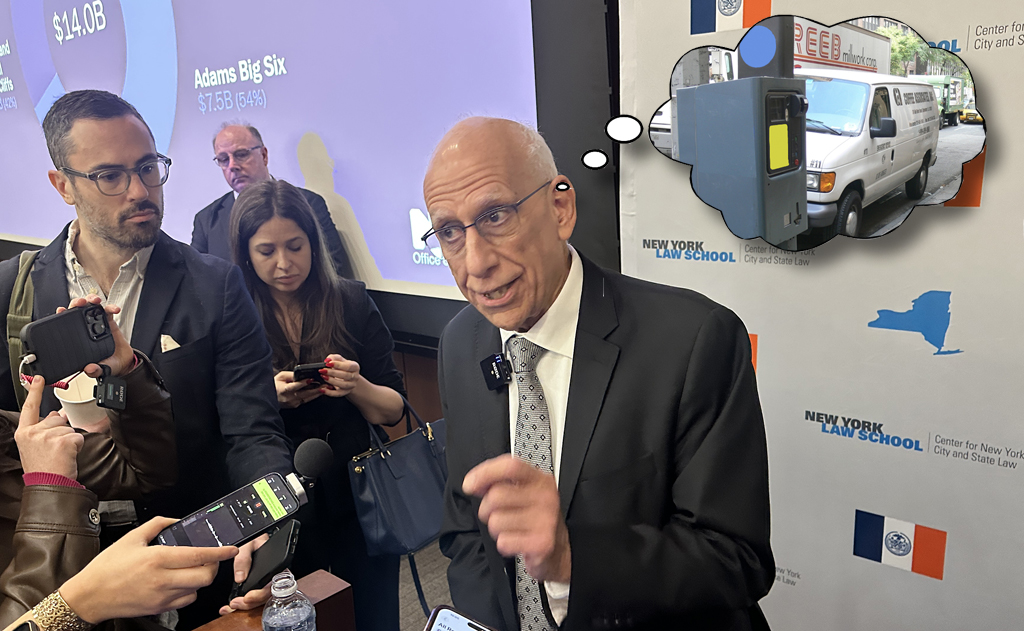It’s April 15. If you bought an electric car in 2013, you can claim a tax break today. If you bought a plug-in hybrid, you can get a tax break today. But if you don’t own a car and walk to work instead? Sorry, Charlie.

There’s a whole array of goodies in the U.S. tax code for drivers, the automobile industry, and oil companies. Here are the ABC’s (and the DE’s) of these tax-day gifts that help clog our streets with cars.
Alternative vehicle logistics. President Obama wants to extend the tax break for people who invest in properties involved in the production of advanced vehicles or the fuels they use. The Treasury Department argues that the $2.3 billion allocated for this incentive under the 2009 stimulus wasn’t enough, and that it didn’t reach more than two-thirds of eligible applicants.
Biofuels. You can get a dollar from Uncle Sam for every gallon of biodiesel you produce, though this is the last year for that one.
Car commuting and driving for work. The granddaddy of all tax incentives for driving is the $250 per month that car commuters can claim in tax-free income to cover parking expenses. Once you’re on the clock, your driving expenses are also eligible for a tax deduction. The IRS lets you write off 56.5 cents for every mile you drive for your job. As Turbo Tax’s fact sheet says plainly: “More miles, more money.” You can even write off trips to search for a job, see a rental property you own, or do volunteer work (though that one gets a lower rate). In some cases, you can even claim deductions for car washing and polishing.
Drilling. Oil companies can write off costs associated with drilling and for the amount of oil taken out of (“depleted” from) their wells. They also get a big thank-you from Uncle Sam for not exporting jobs to China.According to The Atlantic, those three tax expenditures alone will cost taxpayers $37 billion over the next decade. Despite repeated efforts to repeal these subsidies, including for deficit-reduction purposes, they live on.
EVs. The Obama administration announced last month that the tax incentives for alternative fuel vehicles aren’t big enough yet. The White House wants to increase the maximum tax credit for purchasing electric vehicles from $7,500 to $10,000 and broaden it to include a wider range of “advanced technology vehicles.” The reason? President Obama thinks putting a million of these cars on the road by 2015 would “reduce dependence on foreign oil and lead to a reduction in oil consumption of about 750 million barrels through 2030.”
You know what else reduces dependence on all oil, foreign or otherwise? Not driving. It’s also a great way to reduce wear and tear on roads, decrease congestion, and make places more economically productive. (Is there anything that not-driving can’t do?)
Plus, according to the Federal Highway Administration, zero-vehicle households are disproportionately low-income. Sixty percent of them have incomes under $20,000, compared with just 16 percent of the vehicle-owning population. Meanwhile, the affluence of the EV-owning population is off the charts: A recent survey of electric car owners found that 30 percent of them make over $200,000 a year [PDF]. So credits for EVs are fundamentally regressive.
Obama also wants to increase the maximum tax credit for advanced technology medium-duty trucks from $20,000 to $25,000 and to maintain the $40,000 benefit for heavy-duty trucks.
Fuel Tax. And while it’s not a tax-day thing, we’d be remiss if we didn’t mention the federal gas tax, stuck at 18.4 cents a gallon though improved fuel efficiency and inflation combined have reduced the value of the tax by 28 percent since 1997 [PDF]. Despite a widespread understanding of shortfalls in federal transportation funding, the political will to actually raise the gas tax is nearly nonexistent.





